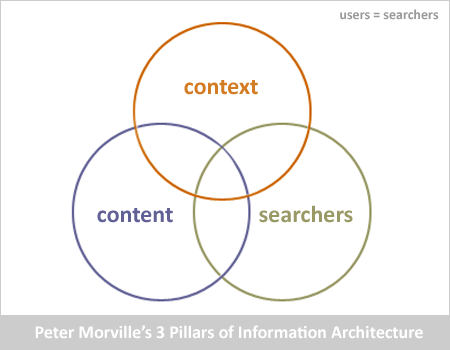How To Understand Keywords In Searcher Context
Is it possible for SEO professionals to understand searcher context based purely on keyword research data?
In my last column, I created a Web searcher behavior quiz to demonstrate the complexity of query (keyword) classification. I admit that it was a tough quiz. But I made it tough for a reason.
When it comes to keyword classification and context, it is far too easy to inject our personal opinions onto keyword phrases. It is not a “bad” thing to want to relate to, engage, and connect with your target audience.
As search optimizers, we sincerely hope that searchers’ mental models of desired content matches the content we have on our own and our clients’ websites.
Nevertheless, the ability to be objective about keywords is vital in order to truly understand web searchers. As SEO professionals, we not only need to understand the words and phrases that our target audiences type in to search engine, we also need to understand the context of keyword phrases.
Searcher Mental Models & Search Conditions
What exactly do I mean by context? By context, I am referring to a searcher’s mental model and the conditions under which he or she is searching.
Questions to consider:
- Is the search being conducted at home or at the office? Or both?
- Is the searcher using a desktop computer, tablet, or mobile phone?
- Is there a time constraint on the search query, such as needing to change ones hotel reservation due to a delayed flight?
- Or is the search session one that lasts over a period of 2-3 weeks, such as when a person is researching a product before purchasing?
- If the search session is long, are the keyword phrases repeat queries, possibly re-finding queries?
- Is the searcher a newbie, experienced, or expert Web searcher?
Some context can be gathered via Web analytics data and other types of software. But not 100% of searcher context. All too often, Web searchers do not type in their keyword context in a search box.
Keywords Without Context
Here is an example from some usability tests my firm conducted last year. We presented over 100 participants with a search box with a single keyword. The first word we presented was the word gas.
Here are a number of images that came to their minds (not presented in any particular order):
Most participants immediately thought gas meant the gasoline that they put in their cars. We observed facial expressions of amusement when participants were thinking of belching/burping or farting.
Then, we changed the context. We told participants that the context was a medical/heathcare context.
None of them thought of natural gas or car fuel. Some participants thought of oxygen. Some (again) thought belching or flatulence. And a couple of participants thought of Group A Streptococcus (abbreviation is GAS). So even though the context was more specific with the second question, the keyword associations were quite different.
We next used something possibly simpler than a word: the letter K.
Here are a number of images that came to their minds after being shown the letter K in a search box (also not presented in any particular order):
I can tell you my immediate association with the letter K. It was file size, as in kilobytes. I am a Web designer/developer and an SEO. I optimize PDFs as part of my job. So that is my personal mental model.
Around 10% of participants associated the letter K with Vitamin K, which can be found in some of the foods shown above. Keywords associated with Vitamin K include vitamin(s), diet, supplement, vegetables, food, and so forth.
If you put a number in front of the letter K, it can completely change the context:
- 401(k)
- 18K or 14K
What are the words associated with 401(k)? They are probably words associated with savings, retirement, financial planning, and money.
What are the words associated with 18K and 14K? Probably jewelry, metals (gold, silver, platinum), gemstones, and so forth.
Notice how something as simple as a single number or a single word affects context. Notice how users/searchers expect to see different words on webpages based on their search conditions and mental models.
And, as I mentioned previously, searchers do not often type in their context into search queries.
The Untyped Context
Labeling is an area where the areas of information architecture and search engine optimization overlap. Part of my job, as an information architect and an SEO professional, is to understand how a client’s target audience organizes and labels content on a website.
One of my most eye-opening and humbling experiences as an information architect was to recognize that Web searchers do not organize content based on keyword research data. With every card sorting and other usability tests, I heard (and recorded) comments that were contrary to keyword research data.
People do not categorize insurance, travel, real estate, healthcare, food and recipes, etc. by topic but via other means. They might first categorize themselves as a part of a group and then search by topic.
They don’t type in their personal information (What group am I in?) in the search box. But they expect to see their context in search results and corresponding landing pages 100% of the time. They expect to see text, images, and even color associated with their context.
I constantly observe SEO professionals and website owners use volume of queries to architect a site when users/searchers organize content by less common keyword combinations.
In the examples above, look how a single word or a single letter changed the searcher context…and you might not see these words in analytics data or in the right volume.
I am not saying to discount keyword research tools. I have used them since 1995. They provide useful data, particularly for labeling. But I urge SEO professionals to consider alternative means of understanding searcher context.
- Field studies
- User interviews
- Usability testing
- Observing users/searchers in their “natural” search environment
- Diary studies
As information architect Peter Morville stated in his User Experience Design article years ago,”…we must strike a unique balance on each project between business goals and context, user needs and behavior, and the available mix of content.”

Adapted from information architecture guru Peter Morville’s 3 Pillars of Information Architecture. Image used with permission.
And from noted search expert Richard Zwicky in his Context Within Search and Optimization article, “This process of helping guide the search engine to better understand the context of a document, so that the engine can properly direct searchers to the right document, and thus ensure relevant results, is a the core of what any good search engine optimization firm must do. It should be at the core of every search engine algorithm, but obviously context is not yet there.”
Help search engines understand context. Open your eyes to other research methodologies. You won’t regret it.
Contributing authors are invited to create content for Search Engine Land and are chosen for their expertise and contribution to the search community. Our contributors work under the oversight of the editorial staff and contributions are checked for quality and relevance to our readers. The opinions they express are their own.
Related stories
New on Search Engine Land

